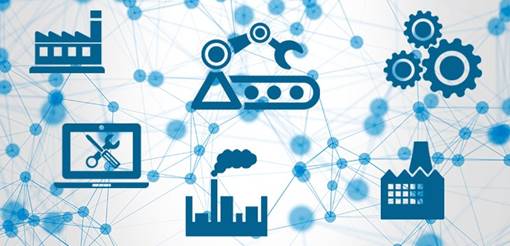The industrial Internet of Things is starting to come of age, but are African organisations ready to use it to boost their global competitiveness? The reality is that many industrial companies in Africa are missing a critical building block for an Internet of Things strategy—a modern, robust, and integrated set of enterprise applications.
That’s according to Matthew Kibby, Vice-President, Enterprise, Africa & Middle East at Sage. He says that a flexible, modern enterprise applications suite will give the business the ability to efficiently gather, analyse and act on the information it gathers from sensors and devices in the connected workplace. This is the key to unlocking the value of the industrial Internet of Things.
Citing research from IBM, Kibby points out that 90% of data created by the Internet of Things is never captured, analysed or used. One of the major reasons for this is that legacy enterprise resource planning software isn’t up to the task. Organisations need a scalable solution that can handle big data efficiently, so that it can be used to feed advanced analytics, says Kibby.
“The industrial Internet of Things carries enormous promise for industrial companies,” Kibby adds. “It can enable them to automate many of their plant or shop floor processes and workflows, reduce operational costs, improve asset utilisation, and introduce predictive maintenance to prevent downtime.” The benefit is that machines can process data faster than people can, bringing higher levels of efficiency and automation to the business
Weaving Systems together
The industrial Internet of Things weaves together factory equipment and sensors into a connected network, allowing them to communicate with each other and with business systems, says Kibby.
In the process, it can automate many tasks that once required manual intervention. For example, a connected temperature sensor in a plant could initiate the shutdown of an overheating machine.
Even more importantly, the industrial Internet of Things can provide data for operational and strategic decision-making. A few examples:
- Insight about uptime or output from an assembly line that can be used to optimise asset utilisation, production and maintenance. Companies can also get insights to help them predict demand across factories and production lines.
- Creating new business models by extending the industrial Internet of Things down the supply chain to distributors, suppliers and customers.
- A heavy vehicle manufacturer can, for example, track telemetry data from a fleet of trucks in real-time. It may monetise this data by selling reports to the customer and use it to offer a predictive maintenance service.
Connecting Machines, People and Data
“As attractive as these benefits and applications are, legacy technology and a lack of digital skills at industrial companies are holding back adoption in South Africa,”
Kibby says.
“A next-generation Enterprise Management solution is the key to connecting people, machines and data to orchestrate processes more efficiently and enhance decision-making.”
He adds:
“Local businesses face environmental challenges like water and energy constraints as well as tough economic conditions and growing competition. This demands new skills, more streamlined supply and delivery chains, and better cost and waste management. The industrial Internet of Things – along with additive manufacturing, advanced robotics, and artificial intelligence – can help South African industrial companies improve competitiveness and thrive in this changing world.”







